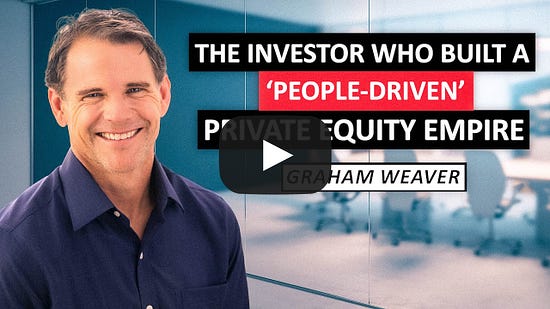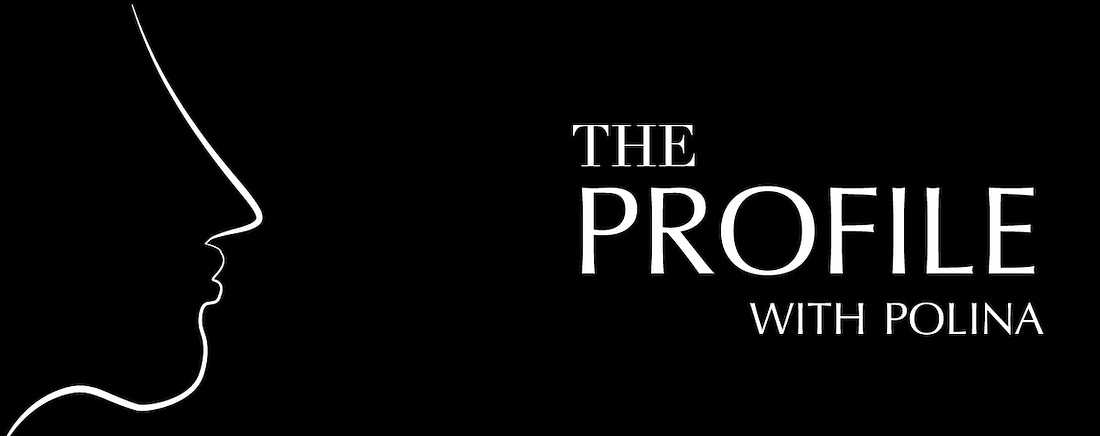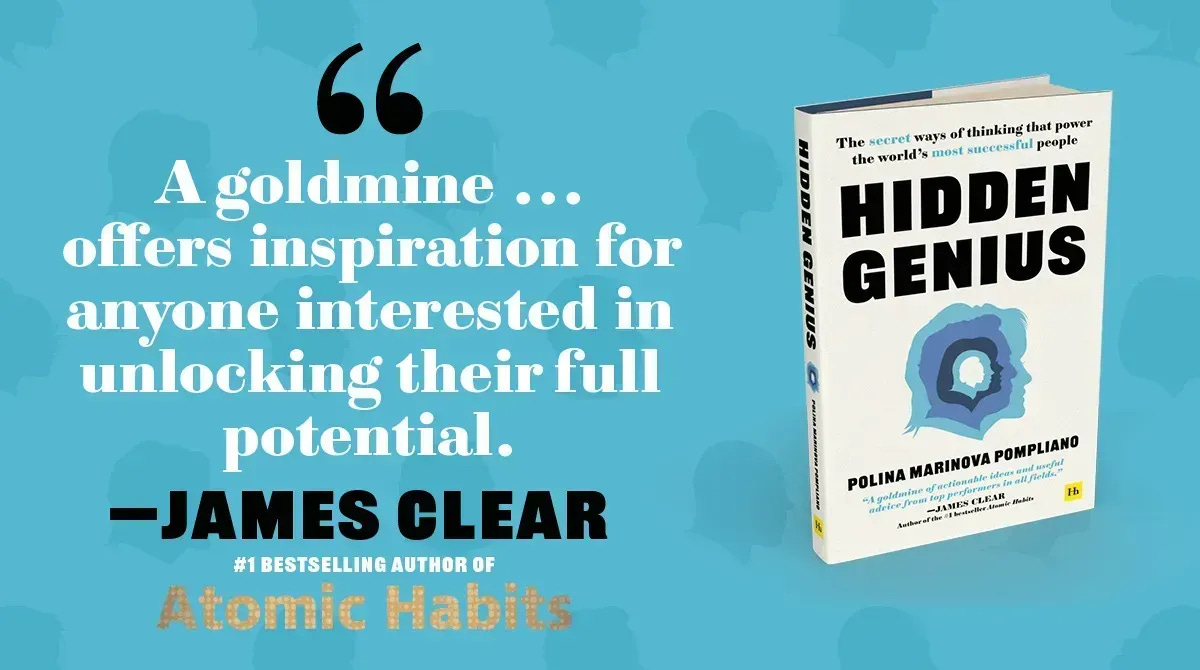The Profile Interview: Meet The Private Equity Investor at the Intersection of Finance and Self-Help
The Profile Interview: Meet The Private Equity Investor at the Intersection of Finance and Self-HelpAlpine Investors founder Graham Weaver unpacks his unique investment strategy, what daily habits have transformed his life, and how to live an asymmetric life.At age 13, Graham Weaver’s parents had recently divorced when he stumbled upon a self-help classic: Napoleon Hill’s ‘Think and Grow Rich.’ “Because my home life was unsettling, I was really looking for something to grab onto,” Weaver told The Profile. “One day, I was going to the library to check out some music, and there was this book that said, ‘Think and Grow Rich.’ I remember thinking, ‘Who doesn't want to think and grow rich?” Weaver, the founder and managing partner of Alpine Investors, has built a private equity empire with an emphasis on personal growth, an unusual topic in the world of cutthroat investing. He credits the self-help genre for teaching him many of the techniques he has applied to his personal and professional lives. Graham believes in self-improvement so much that he has built a personal brand at the intersection of entrepreneurship, investing, and self-help. His TikTok account has amassed nearly 1 million followers featuring videos titled, “7 Questions to Discover Your Life’s Purpose,” 8 Proven Ways to Improve Sleep Quality,” and ‘3 Foolproof Tactics to Form a New Habit.’ While most investors use their company blogs to share press releases, Weaver has a unique strategy in which he blends the personal and the professional. He’s written posts on everything from curing his insomnia to learning life lessons at a Taylor Swift concert to raising a new $4.5 billion fund. “My blog really just reflects my own journey through life,” Weaver says. “Whatever I'm struggling with, or fighting, or teaching, or learning at work, I'm just sharing that along the way. It just happens that I am in a bunch of journeys. I'm running a private equity fund, I'm teaching at Stanford Business School, I'm raising teenagers, I'm trying to stay young.” In this conversation, Weaver unpacks his unique investment strategy, what daily habits have transformed his life, and why he believes we should all strive to live an asymmetric life. This Q&A has been lightly edited for clarity and length. (Below is an excerpt, but I encourage you to listen and watch to the full interview below.) 🎧 LISTEN.
🎬 WATCH. You go into every sale with an “offense deck” and a “defense deck.” Can you explain what these are?WEAVER: I think if you're selling anything, you want to have an ‘offense deck’ and a ‘defense deck.’ The ‘offense deck’ says, ‘Here are the three or four reasons why you have to buy this company. This is why you have to own it.’ And you can be a little aspirational — not untruthful, but aspirational — in selling the dream and the vision. The ‘defense deck’ is what's probably more interesting, which is, ‘What are all the reasons they're not going to want to invest or not going to want to buy?’ So when we fundraise, we have a defense of, ‘Here are all the objections.’ By the way, if you sat down for 10 minutes and just listed out all the objections, you're almost never going to have someone come up with one you didn't come up with. The objections aren't that complicated. They're going to be things you generally already know. And then, here's the counterintuitive part: you actually want to bring all of the defense into the meeting. So for example, if someone says, ‘You have no track record,’ what I what to say is, ‘You're probably thinking, I have no track record.’ And then they're like, ‘Yeah, that's exactly what I'm thinking.’ So you're gaining credibility, and then you have the opportunity to move them from there. A lot of people get out of that meeting, and they say, ‘Oh, thank God, my lack of track record didn't come up at the meeting.’ But then it comes up behind closed doors, and you never actually have an ability to dissuade someone of that objection. So the counterintuitive part is to make the ‘defense deck’ and talk about it in the meeting. If they don't invest, fine, but you got to go down swinging and giving your best pitch on those on those objections. You’ve said that time spent working on yourself is the highest returning investment you will ever make. What are some of the daily habits you’ve implemented in your life that you believe have given you the highest ROI?I would put those in really simply two buckets. The first bucket is health and just bringing my best physical self to life. The reason that I prioritize that so high is literally what I started to realize is, ‘If I feel amazing, I will have an amazing day.’ It is pretty much 100% correlated, irrespective of what's going on in the day. If I'm charged up and I'm excited, then I have a good day. So on that list is sleep. Huge fan of sleep. I try to get seven or eight hours of sleep, and I'm pretty good about about that. Then, I do something cold — so a cold plunge, a cold shower right away. It wakes you up, and there's a lot of science on the immune system [benefits], but if nothing else, it just gets you up and going. For 20 minutes, I do the Wim Hof breathing exercise, and then I do 20 minutes of meditating. It gets me in the right mindset about just being present for the day, and then I work out. And that's my morning. I don't put things on the calendar, typically until 10 a.m, so I can actually really complete that morning routine consistently. I have the luxury of being able to do that, but people have a lot more flexibility and control [in their schedule] than they think they do. If you just block that time, stuff just tends to work around it. And in that same time before 10 a.m, I'm going to do my most cerebral task — writing a lecture writing a blog, reading something, working on a strategy, reading some board materials. So that's kind of the morning routine. I don't drink alcohol, I don't drink caffeine, I don't eat gluten, and I don't take sleeping pills. I try to keep a pretty clean lifestyle. And my objective is to feel like I'm in my 20s even though I just turned 51. So that's the health side of it, which I think is foundational. Then, the second thing of the habits is time management. I try to have my day proactively reflect my goals. So I want the things that I'm working on during the day to match up with my big goals that I've set for myself. The process for doing that for me is to spend about two hours a week with an executive coach, and we go over the goals. It keeps me directed toward what’s important. I would guess we [at Alpine] spend more time than any other financial firm in the world using our imagination. My four partners and I just went to Half Moon Bay for three days and just asked big questions looking out at the ocean. It was messy, and we weren't sure where it was going, and we came up with just the most incredible breakthroughs. Like, those three days are saving us three years of energy going down the wrong path. I love that — that's really where I get my energy. So we spend a tremendous amount of time at Alpine in that kind of messy imagination, creative space. But it saves decades. And I think that's really uncommon. But I got that from all the work I've done with [executive] coaching is just realizing how powerful it is to get super clear on your intent. How do you generate ideas for your content and for your business?For business, it's asking the right questions. So in business it is, ‘How do we deliver X performance? And then, how would we do that in half the time? If we were the best in the world at doubling revenue of a company in the first year, what would be true?’ There's this great coaching line, which is, ‘The ‘how’ is the killer of all great dreams.’ That's my favorite quote. So don't worry about how we get there, but what would be true? In the business world, I think the questions are the hard part, and the answers are not as hard. And then the actual easiest part is taking what you aspire to do and working backwards from that. That's actually not that complicated. So the business is about asking the right questions and having the right people in the room, and that's it. On the on the on the content creation, I mean, it's not that magical. I keep a list of ideas that I have, and my list is way longer than I have time to produce. So I've always got 20 things that I'm excited about talking about or researching. My blog and my content really just reflect my own journey through life. Whatever I'm struggling with, or fighting, or teaching, or learning at work, I'm just sharing that along the way. It just happens that I am in a bunch of journeys. I'm running a private equity fund, I'm teaching at Stanford Business School, I'm raising teenagers, I'm trying to stay young. I'm doing a lot of the journeys that people are doing as well and want to learn about, so I’m sharing my own process as I'm going through. You delivered a speech called “How to Live an Asymmetric Life,” in which said that any change that you want to make is going to make your life worse first. How do you grapple with the idea that any change will feel horrible at first?The reason that I put that principle in there is that the first part of it is just being aware that that's true. So let's say that I'm in a kind of toxic relationship. Let's say it's just not that great. If I stay in that relationship today, my day today will be better than if I get out of it. If I stay in it today, my day today on Dec. 1 will be better than if I ended it on Dec. 1. Just today will be better if I do nothing. Because if I actually end the relationship, I have to have a hard conversation, there's going to be tears, I'm gonna be lonely. I'm I'm gonna second-guess myself — all thes different things are going to happen that are all negative. But on the other side of that is me being able to be in a great relationship. The reason that I think it's important is to just realize that it’s worse first. So yes, your next two weeks or two months are going to get worse if you get out of that relationship or change your job or start marathon training. It's almost always going to get worse, and that's why no one makes changes because they don't want tomorrow to be worse. They want tomorrow to be great. But as soon as you start to realize that the first step is negative, but you do come out the other end, it gives you confidence to make those changes. You have a blog post on parenting, and you write: “Time is like an avalanche. It starts slowly — a snowball barely moving down the hill. But as it gathers speed, it also gathers momentum.” We just had our second child 9 days ago. How should we make sure that we don’t let the daily minutiae steal away the joy of enjoying it now?I think the biggest obstacle to enjoying kids and the biggest misconception is that you're going somewhere. So you've got to teach your kid to walk, then they’re in kindergarten, now you've got to get them ready for first grade, and then you gotta get them to go to this, and it's almost like, there's somewhere to go. The best thing I could say is that the point of your kid playing Little League when they're seven is to play Little League when they're seven. It's not to play in the majors. It's not to play in high school, college, whatever. Maybe they do that, maybe they don't. But if you can have each thing you do with your kids be the whole thing. Like, it's just about this. Because I mean, getting there is they're gone, right? So that's not a great goal. It took me a while to figure that out. I had this mentor of mine give me this big talk about how, ‘Hey, your, your kid's not going to play baseball in college. It’s about now.’ It sounds a little cliché, but if you can approach each experience with your kids that the whole point is just that one experience they’re having. It’s not that they need to go to this and get there and do something. I think that's probably the best advice I could give. … For more like this, make sure to sign up for The Profile here:✨ Order my new book, HIDDEN GENIUS below:You're currently a free subscriber to The Profile. For the full experience, upgrade your subscription. |
Older messages
The Profile: The secretive 38-year-old billionaire & the reporter who quit The New York Times
Sunday, December 3, 2023
This edition of The Profile features Josh Kushner, Bari Weiss, Laura Alber, Dr. Ruth, and more.
The Profile Interview: Meet Laura Dekker, the Youngest Person to Sail Solo Around the World
Wednesday, November 29, 2023
Dekker began her journey when she was 14 years old and finished when she was 16.
The Profile: Welcome to the Profile club, Leo!
Sunday, November 26, 2023
A new addition to The Profile family!
The Profile: The future Mrs. Bezos & why Peter Thiel lost faith in democracy
Sunday, November 19, 2023
This edition of The Profile features Kim Kardashian, Peter Thiel, Jeff Bezos & Lauren Sanchez, and more.
The Profile: Elon Musk’s brain implant startup & the billionaire learning what money can’t buy
Sunday, November 12, 2023
This edition of The Profile features Elon Musk, Steven Cohen, Katharine Roxanne Grawe, and more.
You Might Also Like
🦸🏻#12: How Do Agents Learn from Their Own Mistakes? The Role of Reflection in AI
Saturday, March 1, 2025
we explore how reflection enables AI to self-correct without always needing external feedback, making systems more reliable and autonomous
LUC #75: Database Sharding Explained — Strategies for Scalable Database Management
Saturday, March 1, 2025
Plus, how Elasticsearch works, Kafka explained, and URI vs URL vs URN
🦅 Limited-access masterclass with Arvid Kahl
Saturday, March 1, 2025
Join for free—before March 4! ͏ ͏ ͏ ͏ ͏ ͏ ͏ ͏ ͏ ͏ ͏ ͏ ͏ ͏ ͏ ͏ ͏ ͏ ͏ ͏ ͏ ͏ ͏ ͏ ͏ ͏ ͏ ͏ ͏ ͏ ͏ ͏ ͏ ͏ ͏ ͏ ͏ ͏ ͏ ͏ ͏ ͏ ͏ ͏ ͏ ͏ ͏ ͏ ͏ ͏ ͏ ͏ ͏ ͏ ͏ ͏ ͏ ͏ ͏ ͏ ͏ ͏ ͏ ͏ ͏ ͏ ͏ ͏ ͏ ͏ ͏ ͏ ͏ ͏ ͏ ͏ ͏ ͏ ͏ ͏ ͏ ͏ ͏ ͏ ͏ ͏
AI at Scale: Learnings from monday.com Co-Founder Eran Zinman
Saturday, March 1, 2025
How they've leveraged AI, maintained growth, and expanded into multiple product lines. To view this email as a web page, click here saastr daily newsletter AI at Scale: 8 Learnings from monday.com
Who's Coaching the Coach?
Saturday, March 1, 2025
For this week's Saturday Blueprint, we revisit timely and timeless lessons to help us coach ourselves and others toward growth and deeper connection in the days ahead.
Forecasting VC returns by vertical
Saturday, March 1, 2025
Also: AI dealmaking shatters records in Q4; Diversifying with secondaries; New research on medtech and insurtech; Mixed returns for PE's public giants Read online | Don't want to receive these
First 8 steps to $110K MRR
Saturday, March 1, 2025
I love that you're part of my network. Let's make 2025 epic!! I appreciate you :) Today's hack First 8 steps to $110K MRR Once upon a time, Josh Pigford decided to create a company. Here
Why AI-produced articles are difficult to master
Friday, February 28, 2025
Let's look at the process of creating blog posts using AI tools the right way, that would make it possible for your content to be valuable to users and rank better.
Amazon Reveals It Had 20.93 Billion Searches in December - CrewReview
Friday, February 28, 2025
You're an Amazon whiz... but maybe not an email whiz. Omnisend makes setting up email for your brand as easy as click, drag, and drop. Make email marketing easy. Hey Reader, Believe it or not,
How AI Search Handles Citations, Google’s Latest Lawsuit + 2 Weird Niche Sites
Friday, February 28, 2025
It's Friday and that means one thing... ͏ ͏ ͏ ͏ ͏ ͏ ͏ ͏ ͏ ͏ ͏ ͏ ͏ ͏ ͏ ͏ ͏ ͏ ͏ ͏ ͏ ͏ ͏ ͏ ͏ ͏ ͏ ͏ ͏ ͏ ͏ ͏ ͏ ͏ ͏ ͏ ͏ ͏ ͏ ͏ ͏ ͏ ͏ ͏ ͏ ͏ ͏ ͏ ͏ ͏ ͏ ͏ ͏ ͏ ͏ ͏ ͏ ͏ ͏ ͏ ͏ ͏ ͏ ͏ ͏ ͏ ͏ ͏ ͏ ͏ ͏ ͏ ͏ ͏ ͏ ͏ ͏ ͏ ͏


